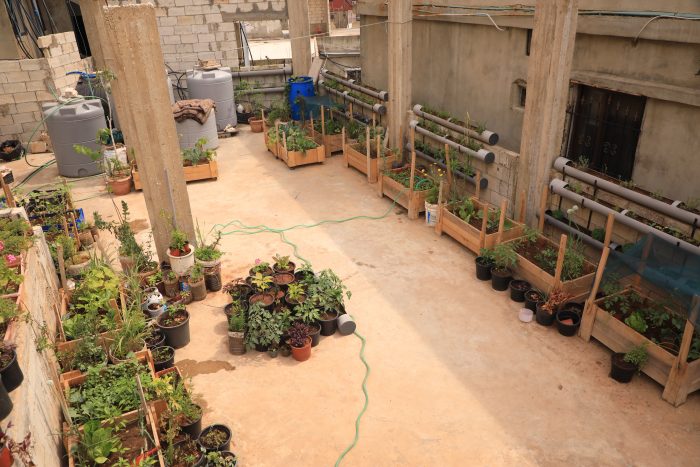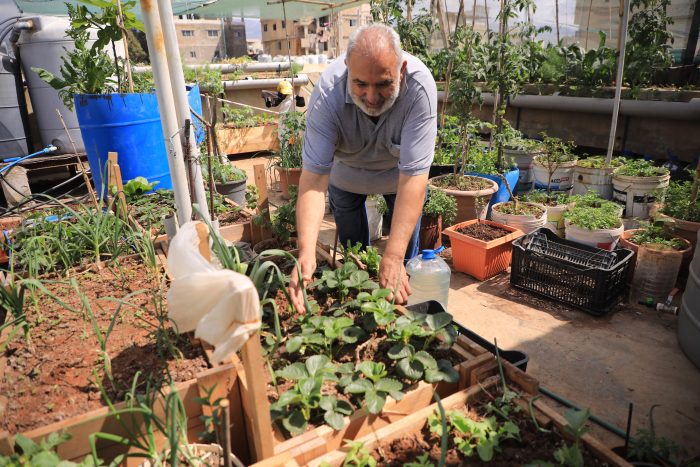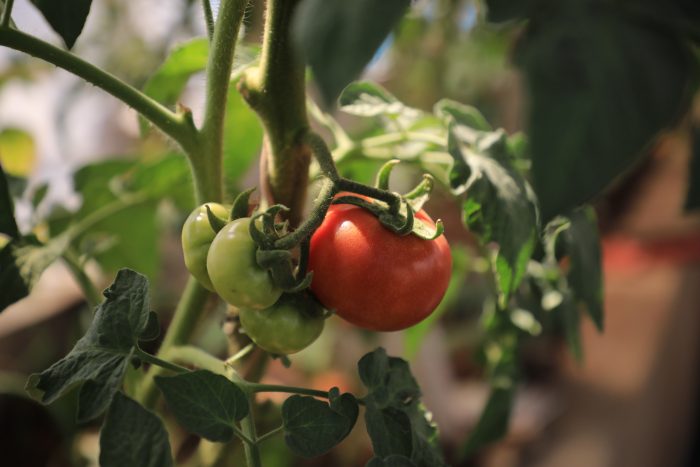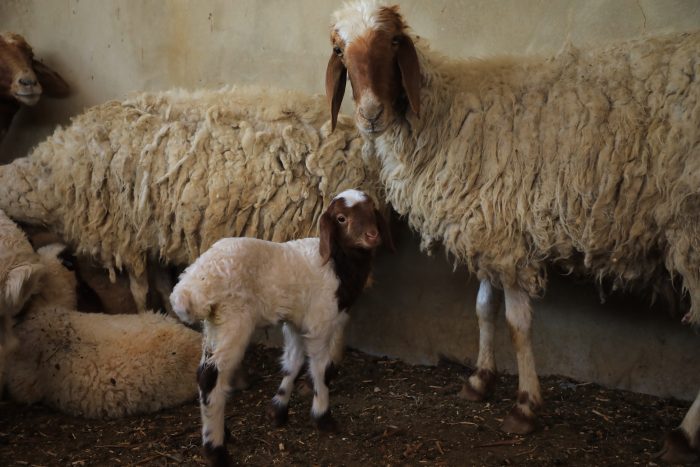Since the majority of Palestine refugees come from agricultural backgrounds and are primarily farmers, Jafra strives to revive the agricultural culture in the Palestinian camps through its Livelihood Enhancement Program. However, their forced separation from agriculture was caused by the loss of their land and the overpopulation in the camps. The reduction in agricultural land vs the population expansion has caused a decline in agriculture compared to the employment in the city, construction, and other areas, even though many Palestine refugees worked in the sector after seeking refuge. Still, some camps, like the Al-Rashidiya camp in Lebanon, which are still close to agricultural area, still have a sizable population engaged in agriculture.

In order to enhance, cultivate, and profit from their products at the neighborhood level, the Jafra Foundation has started to develop a training program on agriculture, particularly urban agriculture, in the Palestinian camps by making use of some of the accessible spaces within the camps. In addition to providing the specialized training in urban farming techniques, their peculiarities and precautions, it has worked on the organic cultivation of roofs inside the Palestinian camps.
In addition to helping to improve the overall scene in the camps by bringing the color green and bringing crops to it, agricultural work is regarded as one of the means of environmental, cultural, and national action. Through the sharing of surplus production with family members and neighbors, it also introduces a new lifestyle into families, improves participation and connection. Let’s not forget that agriculture and the abundance of vegetation on rooftops helps to purify the air and draw in living organisms that are good for the environment, which makes these camps more pleasant. Additionally, some planted surfaces are used to conduct several educational and recreational activities with kids and youth of various ages.

If done thoughtfully and practically in accordance with the space available for usage, planting rooftops in camps can be a second source of income for the owners. This revenue can be tangible by selling the harvest or intangible by utilizing these goods for personal consumption.
The agricultural program entails a comprehensive curriculum in which the participant is exposed to agricultural elements that aid in his plant and crop care. This training covers soil preparation, reliance on organic farming, constant plant care, the composting industry, and integrated pest management using organic and DIY techniques. They are visited by an agronomist on a regular basis, given the appropriate instruction, and shown how to act fast to solve issues to make sure that trainees can implement this knowledge. To complete the picture, these rooftops are furnished with the proper basins, agricultural tools, seeds, seedlings, and even machinery for the compost industry.

In addition, the foundation worked in agriculture to increase its capacity and effectiveness in beekeeping, raising cattle and poultry. It also provided professional trainings in these fields.

The Jafra Foundation in Syria has been working on an agricultural, poultry farming, and livestock production program ever since the Yarmouk camp was under siege. In fact, the Foundation has begun to create its agricultural program by utilizing the available space in the camp, planting it, and caring for it to generate food and distribute it to the communities entrapped inside. Currently, Jafra strives to develop agriculture in Yalda and Babila in order to open up employment opportunities for refugees by hiring them to work in the industry. The cultivated crops are partly used in women’s programs to produce meals and “mouneh” that are redistributed to the most vulnerable families in each neighborhood.
Category : Jafra Programs
